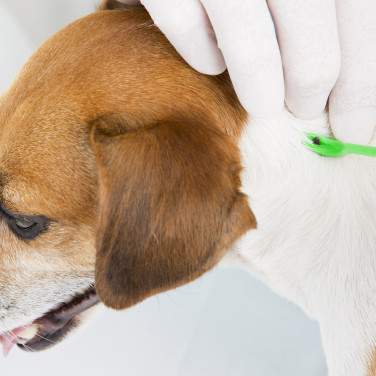FOOD
Can Dogs Eat Figs? Health Benefits and Risks
페이지 정보
본문


Can dogs eat figs?
Many fruits, such as apples and bananas, can be enjoyed with your pets, but figs require a bit more attention. Figs are rich in dietary fiber and essential minerals such as calcium and potassium. However, the stems and skin of figs contain substances called ficin and psoralen, which can be dangerous to dogs and can cause digestive symptoms such as vomiting and diarrhea. It is okay to give a small amount of bite-sized pieces of fig flesh.
Dangers of feeding figs to dog
Fig Poisoning
Figs are a part of the ficus family, which makes their leaves, stems, and bark, toxic to dogs when ingested and can be life-threatening in severe cases.
Psoralen, a component found in the stem and the skin of figs, can cause poisonous symptoms in dogs. The white juice that comes out when you break a fruit or stem contains a proteolytic enzyme called ficin, which helps digestion in humans but can cause irritation in dogs. That is why it is essential that you carefully serve only the flesh of the fruit to provide the health benefits in the fruit for your dog!

Symptoms of fig poisoning
Ingestion of a ficus plant, such as fig leaves and stems, can cause poisoning symptoms such as:
- Excessive drooling
- Vomiting
- Diarrhea
- Abdominal pain
- Skin and eye irritation (skin rashes, watery eyes, etc.)
If you experience any of the above symptoms, even in mild cases, it is recommended that you consult your veterinarian.
Can I feed dried figs to my dog?
Dried figs are particularly bad due to their high sugar and high-calorie content.
Can I feed fig products such as jams, pastes, and Newtons?
Fig Newtons, jams, etc. are delicious and healthy snacks for humans. However, the process of making fig products may contain ingredients that are toxic to dogs, such as sugar and artificial sweeteners, so it is best to avoid them. It is always a good idea to check the label before giving any human foods to your pet.
Allergic reaction to food
As with any other food, the first food may cause an allergic reaction and cause intolerance. It is recommended to give a small amount of the first food to be tested and monitored for signs of allergy. If your puppy shows any signs of an allergy, it is recommended to stop feeding and contact your veterinarian immediately.
Signs of an allergic reaction to look out for:
- Skin problems, such as hives, facial swelling, and itchiness
- Digestive problems, such as vomiting and diarrhea
- Shortness of breath
How to prepare figs for dogs
If you feed your dog figs, it's important to choose ripe figs. Since the stems and skins of figs contain toxic substances, they should be completely removed and only the fleshy part should be fed.
It is always a safe practice to feed your pet a new food in small samples to test for allergic reactions. Scoop a small amount of flesh with a teaspoon and feed your dog to check for any allergic reaction or digestive problems. If everything checks out, only feed small portions and in moderation.
Nutritional guide on figs for dogs
Figs contain a lot of natural sugar and dietary fiber and are rich in minerals such as calcium, potassium, magnesium, and iron.
-
Rich Dietary Fiber
Figs are high in fiber, which helps your dog’s digestive system and helps deal with symptoms of diarrhea and constipation. A fiber-rich diet can help a dog feel fuller for longer, which can help in weight management for obesity, and prevent heart disease and certain types of cancer.
-
Minerals
- Potassium: Helps with heart health, nerves, and muscle function.
- Calcium: Helps maintain healthy bones and teeth.
Wondering if you can feed your dog other foods besides figs?

Does your dog also look up at you with those puppy dog eyes whenever you are snacking on something? You know foods like chocolates should not be shared with them but do you also search the Internet every time if it’s okay to share a bite of whatever you are eating? The Buddydoc Food Dictionary provides information on hundreds of foods that we consume and informs you whether it is safe for them to consume and the nutritional benefits for your pet. If you're curious about other foods, try searching on Buddydoc!













